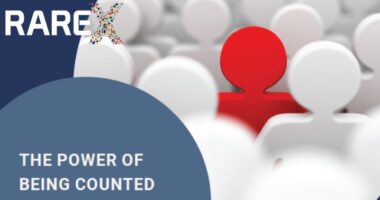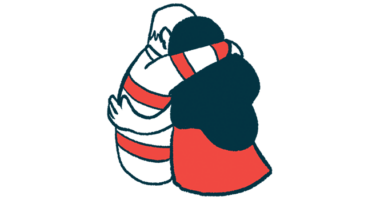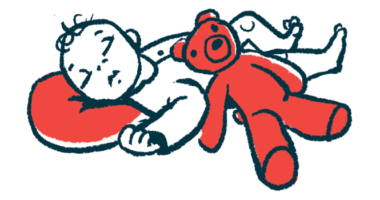Our son’s Prader-Willi diagnosis sparked journey of advocacy, hope
In her columns debut, a mother shares how she became an advocate

People often ask me, “How did you become such a strong advocate?” Many times, I’ll begin my story with the birth of our son, but it really started when I was 24.
A year after my husband and I were married, when we were excited for the future we would build together, I received a devastating cancer diagnosis and was told I’d never have children. Fast forward 10 years, and I gave birth to our daughter. We realized what a miracle she was and were excited about the possibility of having another child.
Another 10 years later, against the odds, we received our second miracle: I was pregnant with our son. We were ecstatic! I felt great, the baby was growing appropriately, and our daughter was beyond excited to have a baby brother.
During the last trimester, I began to ask questions, as I wasn’t feeling much movement. Assured that everything was fine, I had a cesarean section on May 17, 2010. The minute our son was born, I knew something wasn’t quite right. He didn’t cry, but rather made only a small squeak. His Apgar scores were normal, but he began to have a hard time breathing, so he was whisked away to the neonatal intensive care unit (NICU), and our journey began.
Receiving the Prader-Willi diagnosis
The following month was long and emotional as we waited for answers and a diagnosis. I sat by my son’s bedside day in and day out. He didn’t move, didn’t cry, and couldn’t feed or breathe on his own. I felt paralyzed.
About two weeks into our journey, my husband was Googling everything, searching for an answer. Late one evening (I can still see that image of him in the dark NICU room, the light shining off his computer), he looked up and said, “I sure hope it’s not Prader-Willi syndrome, but many of the characteristics seem similar.”
I remember taking the computer from him and starting to read when an overwhelming sense of grief hit me, and tears welled up in my eyes. Many of the characteristics listed were what our son was experiencing: low muscle tone (sometimes known as floppy baby syndrome), failure to thrive, sleeping almost 23 hours a day, etc.
After about 20 days in the NICU, a geneticist visited us. He stood at the end of the crib and said very matter-of-factly, “I’m 99% sure he has Prader-Willi syndrome, but we will need to do additional tests.” Once we received the test results, we were given the official diagnosis and told that, in our son’s case, the syndrome was caused by maternal uniparental disomy.
When we received our son’s diagnosis, our world felt heavy with uncertainty. The medical terminology was foreign to us, and the path ahead seemed daunting. We would face countless appointments, tests, and specialist visits, each one a reminder of the complexities of this rare disease. I also worried how our then 11-year-old daughter would handle all of this.
But in the depths of this journey, I discovered a profound sense of purpose and strength. I realized the love I had for my son was my greatest power, even though, when we got the diagnosis, I looked at my husband and said, “I can’t be a special needs mom. I don’t know how.”
One of the most pivotal advocacy moments for me took place before we received our son’s diagnosis. A specialist stood outside our room during rounds with medical students, and I heard him tell them, “There isn’t anything we can do for this one, so let’s get in and get out.” Immediately, I flung the curtain back and said, “You are responsible for teaching medical students. You can’t tell them that nothing can be done when we don’t yet have a diagnosis.”
That was the moment I knew I had to be my son’s voice, his advocate, and I would do whatever it took to give him the best life possible.
Reasons to celebrate
Throughout our journey, we have witnessed incredible acts of kindness and met many wonderful people. These connections have been invaluable, reminding me that we are not alone in this fight.
The timing of my first column here at Prader-Willi Syndrome News is perfect, as May is when we celebrate not only Prader-Willi Syndrome Awareness Month, but also my son’s birthday. Families will celebrate the awareness month with various educational, advocacy, and fundraising initiatives. More information about the condition can be found by visiting the Foundation for Prader-Willi Research and Prader-Willi Syndrome Association | USA websites.
Lastly, we are celebrating this month with renewed hope and excitement following the U.S. Food and Drug Administration’s approval of the first drug to treat hyperphagia, or insatiable hunger, in people with Prader-Willi.
As we look forward, we will continue finding joy in our journey!
Note: Prader-Willi Syndrome News is strictly a news and information website about the disease. It does not provide medical advice, diagnosis, or treatment. This content is not intended to be a substitute for professional medical advice, diagnosis, or treatment. Always seek the advice of your physician or other qualified health provider with any questions you may have regarding a medical condition. Never disregard professional medical advice or delay in seeking it because of something you have read on this website. The opinions expressed in this column are not those of Prader-Willi Syndrome News or its parent company, Bionews, and are intended to spark discussion about issues pertaining to Prader-Willi syndrome.








Leave a comment
Fill in the required fields to post. Your email address will not be published.